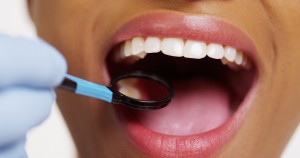 With our busy lives, we don’t need one more thing to remember to do, let alone 10! But taking simple steps to protect your teeth from tooth decay, and thereby preventing cavities, will save you from a lot of grief (and expense) later. By following these 10 ways to prevent cavities, you’ll have a healthier mouth, greatly minimizing any chance of discomfort and giving you a brighter smile.
With our busy lives, we don’t need one more thing to remember to do, let alone 10! But taking simple steps to protect your teeth from tooth decay, and thereby preventing cavities, will save you from a lot of grief (and expense) later. By following these 10 ways to prevent cavities, you’ll have a healthier mouth, greatly minimizing any chance of discomfort and giving you a brighter smile.
What are Cavities?
The formation of cavities begins with tooth decay, which is a breaking down of the tooth’s structure. This can affect both the dentin, one of a tooth’s components, and the enamel, the tooth’s outer coating. Starches and sugars that stay on the teeth provide an irresistible environment for bacteria that feasts on it and produces acids. This acid combines with bacteria, food debris and saliva to form plaque, the acid dissolves tooth enamel, and this can create holes in the teeth, otherwise known as cavities.
How Can I Prevent Tooth Decay and Cavities?
Fortunately, there are things you can do to make your mouth less desirable for bacteria. This includes common sense tasks like brushing your teeth regularly, but there are also certain foods and substances that can help. WebMD and WikiHow provide tips for maintaining a healthy mouth and preventing cavities.
1. Brush Teeth Regularly
It is recommended that you brush your teeth after every meal, and it’s especially important to brush before going to bed. This is because any food particles left in your mouth has several hours in which to attract bacteria. You should also brush your teeth after any sweet or sticky snacks.
2. Clean Between the Teeth
This is a common place for food to get left behind after meals. You can use traditional dental floss or other types of cleaning tools such as dental picks or interdental brushes.
3. Rinse Every Day with Antiseptic Mouthwash
Swishing mouthwash that contains antiseptics around your gums and teeth will get rid of bacteria and wash away food particles. Fluoride is still recommended by many dentists as the key ingredient for toothpaste and mouthwash. However, for those who prefer not to use fluoride, effective natural alternatives include coconut oil, neem leaf extract and myrrh. Tea tree oil is another powerful antiseptic, and it can be found in natural mouthwashes.
4. Foods to Watch Out For
Candy, soda and carbohydrates are bad for your teeth, because sugar and carbohydrates will attract bacteria. If you eat these kinds of foods, try to brush or at least rinse with water immediately afterwards.
5. Healthy Eating for Strong Teeth
There are certain foods that will help your teeth stay healthy. Calcium is very important, which is found not only in dairy products, but also fortified soy-based foods, dark leafy vegetables and almonds. Vitamin, phosphorous, magnesium and vitamin A are also key vitamins for tooth health.
6. Crunchy Fruit and Veggies Keep Teeth Clean
There are foods that can help clean your teeth while providing a healthy snack. Vitamin-rich raw foods like carrots, celery and apples contain plant fiber which behaves like a mild abrasive, so chewing on them can gently remove bacteria. In addition, chewing causes your mouth to produce saliva, which helps to restore your mouth’s pH balance. Balanced pH discourages bacteria growth and prevents plaque buildup.
7. Switch to Sugar-Free Gum
Chewing gum is generally considered very bad for your teeth, and in most cases, it is. However, sugar-free gum that contains Xylitol, made from birch wood, reduces bacteria and can even be helpful if you’re not able to brush right after a meal.
8. Beverages that Help Fight Cavities
Drinking water regularly will help clean your teeth. It is especially recommended after drinking alcohol, since sugars in the alcoholic beverage can harm your teeth. Black and green teas are less acidic than coffee. Green tea, which contains polyphenols, reduces bacteria in the mouth, so it can even help prevent plaque.
9. Consider Dental Sealants
Depending on the shape and structure of your teeth, your dentist might recommend a plastic protective coating on your back teeth (molars). If your teeth have a lot of crevices where food can get stuck, these sealants can help protect vulnerable teeth from decay.
10. Visit Your Dentist Regularly
A professional cleaning by your dentist will be able to clean areas of your mouth that your toothbrush and floss don’t reach. During the exam, they’ll also be able to see if there are any problem areas that you need to pay closer attention to.







Leave a Reply